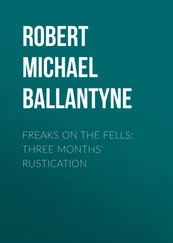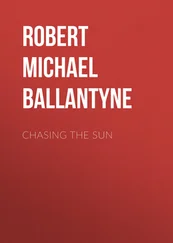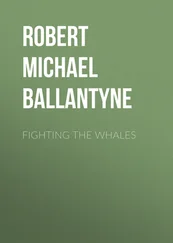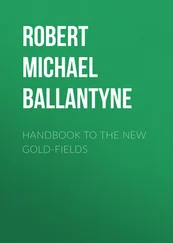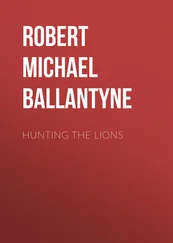Robert Michael Ballantyne - Erling the Bold
Здесь есть возможность читать онлайн «Robert Michael Ballantyne - Erling the Bold» — ознакомительный отрывок электронной книги совершенно бесплатно, а после прочтения отрывка купить полную версию. В некоторых случаях можно слушать аудио, скачать через торрент в формате fb2 и присутствует краткое содержание. Жанр: Детские приключения, literature_19, foreign_antique, foreign_prose, foreign_children, на английском языке. Описание произведения, (предисловие) а так же отзывы посетителей доступны на портале библиотеки ЛибКат.
- Название:Erling the Bold
- Автор:
- Жанр:
- Год:неизвестен
- ISBN:нет данных
- Рейтинг книги:4 / 5. Голосов: 1
-
Избранное:Добавить в избранное
- Отзывы:
-
Ваша оценка:
- 80
- 1
- 2
- 3
- 4
- 5
Erling the Bold: краткое содержание, описание и аннотация
Предлагаем к чтению аннотацию, описание, краткое содержание или предисловие (зависит от того, что написал сам автор книги «Erling the Bold»). Если вы не нашли необходимую информацию о книге — напишите в комментариях, мы постараемся отыскать её.
Erling the Bold — читать онлайн ознакомительный отрывок
Ниже представлен текст книги, разбитый по страницам. Система сохранения места последней прочитанной страницы, позволяет с удобством читать онлайн бесплатно книгу «Erling the Bold», без необходимости каждый раз заново искать на чём Вы остановились. Поставьте закладку, и сможете в любой момент перейти на страницу, на которой закончили чтение.
Интервал:
Закладка:
But the danger was not yet past. Several of the smaller masses, which had been partially arrested in their progress by bushes, still came thundering down the steep. The quick eye of the hermit observed one of these flying straight towards his head. Its force had been broken by a tree on the opposite hill, but it still retained tremendous impetus. He knew that there was no escape for him. To have moved aside would have exposed Hilda to almost certain destruction. Once again he murmured the Saviour’s name, as he stretched out both hands straight before his face. The rock struck full against them, beat them down on his forehead, and next instant old man and maid were hurled to the ground.
Well was it for Erling that all this occurred so quickly that the danger was past before he reached the spot. Part of the road he had to traverse was strewn so thickly with the rocky ruin that his destruction, had he been a few seconds sooner on the ground, would have been inevitable. He reached Hilda just in time to assist her to rise. She was slightly stunned by the shock, but otherwise unhurt.
Not so the hermit. He lay extended where he had fallen; his grey beard and thin scattered locks dabbled with blood that flowed from a gash in his forehead. Hilda kneeled at his side, and, raising his head, she laid it in her lap.
“Now the gods be praised,” said Erling, as he knelt beside her, and endeavoured to stanch the flow of blood from the wound; “I had thought thy last hour was come, Hilda; but the poor old man, I fear much he will die.”
“Not so; he recovers,” said the girl; “fetch me some water from the spring.”
Erling ran to a rill that trickled down the face of the rock at his side, dipped his leathern bonnet into it, and, quickly returning, sprinkled a little on the old man’s face, and washed the wound.
“It is not deep,” he remarked, after having examined the cut. “His hands are indeed badly bruised, but he will live.”
“Get thee to the stede, Erling, and fetch aid,” said Hilda quickly; “the old man is heavy.”
The youth smiled. “Heavy he is, no doubt, but he wears no armour; methinks I can lift him.”
So saying Erling raised him in his strong arms and bore him away to Ulfstede, where, under the tender care of Hilda and her foster-sister Ada, he speedily revived.
Erling went out meanwhile to assist in the hayfield.
Chapter Three.
Shows how Chief Friends may become Foes, And Cross-Purposes may Produce Cross Consequences, involving Worry and Confusion
When Christian had been properly cared for, Hilda sent Ada to the hayfield, saying that she would follow her in a short time. Now it so happened, by one of those curious coincidences which are generally considered unaccountable, that as Ada ascended the track which led to the high field above the foss, Glumm the Gruff descended towards the same point from an opposite direction, so that a meeting between the two, in the secluded dell, where the tracks joined, became inevitable.
Whether or not this meeting was anticipated we cannot tell. If it was, the young man and maiden were inimitable actors by nature, for they appeared to be wholly unconscious of aught save the peculiar formation of the respective footpaths along which they slowly moved. There was, indeed, a twinkle in Ada’s eyes; but then Ada’s eyes were noted twinklers; besides, a refractory eyelash might account for such an expression.
As for Glumm, he frowned on the path most unamiably while he sauntered along with both hands thrust into the breast of his tunic, and the point of his sword rasping harshly against rocks and bushes. Glumm was peculiar in his weapons. He wore a double-handed and double-edged sword, which was so long that he was obliged to sling it across his back in order to keep it off the ground. The handle projected above his left shoulder, and the blade, lying diagonally across his person, extended beyond his right calf. The young man was remarkably expert in the use of this immense weapon, and was not only a terror to his foes, but, owing to the enormous sweep of its long blade, an object of some anxiety to his friends when they chanced to be fighting alongside of him. He wore a knife or dagger at his girdle on the right side, which was also of unusual size; in all probability it would have been deemed a pretty good sword by the Romans. There were only two men in the dale who could wield Glumm’s weapons. These were Erling and his father, Haldor. The latter was as strong a man as Glumm, Erling was even stronger; though, being an amiable man he could not be easily persuaded to prove his strength upon his friends. Glumm wore his hair very short. It was curly, and lay close to his head.
As he sauntered along he kicked the stones out of his way savagely, and appeared to find relief to his feelings in so doing, as well as by allowing his sword to rasp across the rocks and shrubs at his side. It might have been observed, however, that Glumm only kicked the little stones out of his way; he never kicked the big ones. It is interesting to observe how trifling a matter will bring out a trait of human nature! Men will sometimes relieve their angry feelings by storming violently at those of their fellows who cannot hurt them, but, strangely enough, they manage to obtain relief to these same feelings without storming, when they chance to be in the company of stronger men than themselves, thereby proving that they have powers of self-restraint which prudence—not to say fear—can call into exercise! commend this moral reflection particularly to the study of boys.
After Glumm had kicked all the little stones out of his way, carefully letting the big ones alone, he came suddenly face to face with Ada, who saluted him with a look of startled surprise, a slight blush, and a burst of hearty laughter.
“Why, Glumm,” exclaimed the maiden, with an arch smile, “thou must have risen off thy wrong side this morning. Methinks, now, were I a man, I should have to look to my weapons, for that long blade of thine seems inclined to fight with the rocks and shrubs of its own accord.”
Poor Glumm blushed as red as if he had been a young girl, at being thus unexpectedly caught giving vent to his ill-humour; he stammered something about bad dreams and evil spirits, and then, breaking into a good-humoured smile, said:
“Well, Ada, I know not what it is that ails me, but I do feel somewhat cross-grained. Perchance a walk with thee may cure me, I see thou art bound for the hayfield. But hast thou not heard the news? The Danish vikings are off the coast, burning and murdering wherever they go. It is rumoured, too, that their fleet is under that king of scoundrels, Skarpedin the Red. Surely there is reason for my being angry.”
“Nay, then, if thou wert a bold man thou wouldst find reason in this for being glad,” replied Ada. “Is not the chance of a fight the joy of a true Norseman’s heart? Surely a spell must have been laid on thee, if thy brow darkens and thy heart grows heavy on hearing of a stout enemy. It is not thus with Erling the Bold. His brow clears and his eye sparkles when a foe worthy of— But what seest thou, Glumm? Has the Dane appeared in the forest that thy brow becomes so suddenly clouded? I pray thee do not run away and leave me unprotected.”
“Doubtless if I did, Erling the Bold would come to thine aid,” replied the young man with some asperity.
“Nay, do not be angry with me, Glumm,” said the girl, laughing, as they reached the field where Haldor and his stout son were busily at work assisting Ulf, who, with all his thralls and freemen, was engaged in cutting and gathering in his hay.
“Hey! here come cloud and sunshine hand in hand,” cried Erling, pausing in his work, as Glumm and his pretty companion approached the scene of labour.
Читать дальшеИнтервал:
Закладка:
Похожие книги на «Erling the Bold»
Представляем Вашему вниманию похожие книги на «Erling the Bold» списком для выбора. Мы отобрали схожую по названию и смыслу литературу в надежде предоставить читателям больше вариантов отыскать новые, интересные, ещё непрочитанные произведения.
Обсуждение, отзывы о книге «Erling the Bold» и просто собственные мнения читателей. Оставьте ваши комментарии, напишите, что Вы думаете о произведении, его смысле или главных героях. Укажите что конкретно понравилось, а что нет, и почему Вы так считаете.


